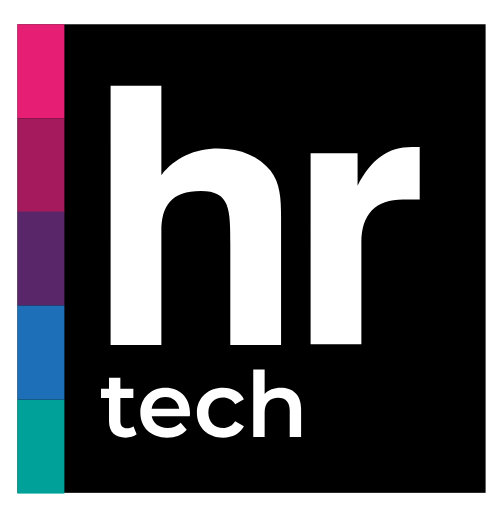News
DeepSeek, Donald Trump and Jevons' Paradox
)
The irruption of DeepSeek into our lives has brought a tsunami of reactions, not only in the technology sector, but also in the social sector, so much so that it is difficult not to meet someone who does not ask you about it in the last week. The greater cost efficiency of this new AI may increase the demand for data, which is curiously aligned with the Jevons Paradox, and will have geopolitical implications in the race for innovation.
Let the obvious go first, this is not a scientific article, it does not pretend to be, it is rather a summary that tries to sort out ideas and topics of conversation that I have had with clients and friends in the last 48 hours.
To put the conversation in context for the more clueless, DeepSeek is a new LLM (Large Language Model, Artificial Intelligence) that will not only compete with OpenAI in capabilities, but has three features that make it very relevant:
- It has been created by a company based in China,
- It has been developed from open source code,
- It was born in a scenario of chip scarcity at a very competitive cost.
These three characteristics have put the AI development ecosystem in check, the first because of its geopolitical implications, the second because it shows that restrictions sharpen ingenuity and leads us to a more democratic scenario in AI that will accelerate innovation, and the third because it marks a technical improvement that is sure to be adopted in other parts of the world. Not since the launch of ChatGPT in October 2022 has there been a leap forward similar to that of DeepSeek (in just a few weeks it already has more downloads than ChatGPT for mobile devices in the United States...).
However, if we abstract from the headlines and look at the impact on digital infrastructure investments, it is still too early to know the real impact of this new technology on the data center market. What does seem clear is that, in the short term, what could happen is that NVIDIA's sales estimate and hardware cost per megawatt could go down. Now, this could mean two scenarios, the first one is that with the same cost you need half the hardware and therefore AI projects will be smaller, or more likely in my opinion, that with the same cost you can install twice the hardware and therefore projects will be more intensive.
The reason for choosing the latter was discussed with a friend this morning talking about the Jevons Paradox, which basically means that when there is a substantial increase in the efficiency of a factor of production, in this case hardware, the fall in its price promotes its demand (provided that this demand is sufficiently elastic, and technology clearly is). Specifically, Jevons' paradox implies that the introduction of more energy-efficient technologies can increase total energy consumption. This happened with the steam engine and coal consumption, but it has also happened with the electric car industry or even with the data traffic associated with 5G versus 4G, i.e., 5G is more efficient in energy use than 4G, but that same efficiency has driven up energy demand due to increased data traffic.
Therefore, beyond the specific consequences for each Hyperscaler, which is a topic for another article, the appearance of DeepSeek is simply one more step in a natural cost reduction curve for a technology that has yet to be developed, and which does not necessarily mean a halt in investment or in the demand for data processing; on the contrary, we could be facing a new innovation scenario that will further boost the digitalization of the economy.
However, what it will mean, for sure, is a wake-up call for the United States in its race to continue leading the world at the macroeconomic level. Donald Trump is the answer chosen by American citizens who, for the most part, feel threatened by this new world that is coming, and which will be irremediably based on energy and technology. Trump wants to be a leader not only in energy production (oil and gas primarily), but also in chip production within its borders (he has just announced a tariff hike on chip imports from Taiwan). If he achieves this, and combines it with the revaluation of the dollar (which seems likely with all these new tariffs and the arrival of capital from emerging countries) and with continuing to be a pole of talent generation (this is all about programmers, let's not forget), he might be able to compete with the lower cost of capital of other geographies.
In short, new problems, new solutions, and a slightly different world... or at least with new issues, Energy and Digitalization, which are the axes that are going to set our agenda in the coming years... that and Demographics, but that's another topic. In any case, and seeing that the evolution of sovereign bonds is going to make the debate on yields quite boring (most of them should remain flat) it is always good to look for new angles to create value, that is what we do at Colliers every day.
Gonzalo Martín
Director | Capital Markets
Colliers

 Cloud & AI Infrastructure
Cloud & AI Infrastructure Cyber Security World
Cyber Security World Big Data & AI World
Big Data & AI World  Data Centre World
Data Centre World  Technology for Marketing
Technology for Marketing E-Show
E-Show HR Technologies
HR Technologies Learning Technologies
Learning Technologies)
)
)
)
)
)
)
)
)
)
)
)
)
)
)
)
)
)
)
)
)
)
)
)
)
)
)
)
)
)
)
)
)
)
)
)
)
)
)
)
)
)
)
)
)
)
)
)
)
)
)
)
)
)
)
)
)
)
)
)
)
)
)
)
)
)
)
)
)
)
)
)
)
)
)
)
)
)
)
)
)
)
)
)
)
)
)
)
)
)
)
)
)
)
)
)
)
)
)
)
)
)
)
)
)
)
)
)
)
)
)
)
)
)
)
)
)
)
)
)
)
)
)
)
)
)
)
)
)
)
)
)
)
)
)
)
)
)
)
)
)
)
)
)
)
)
)